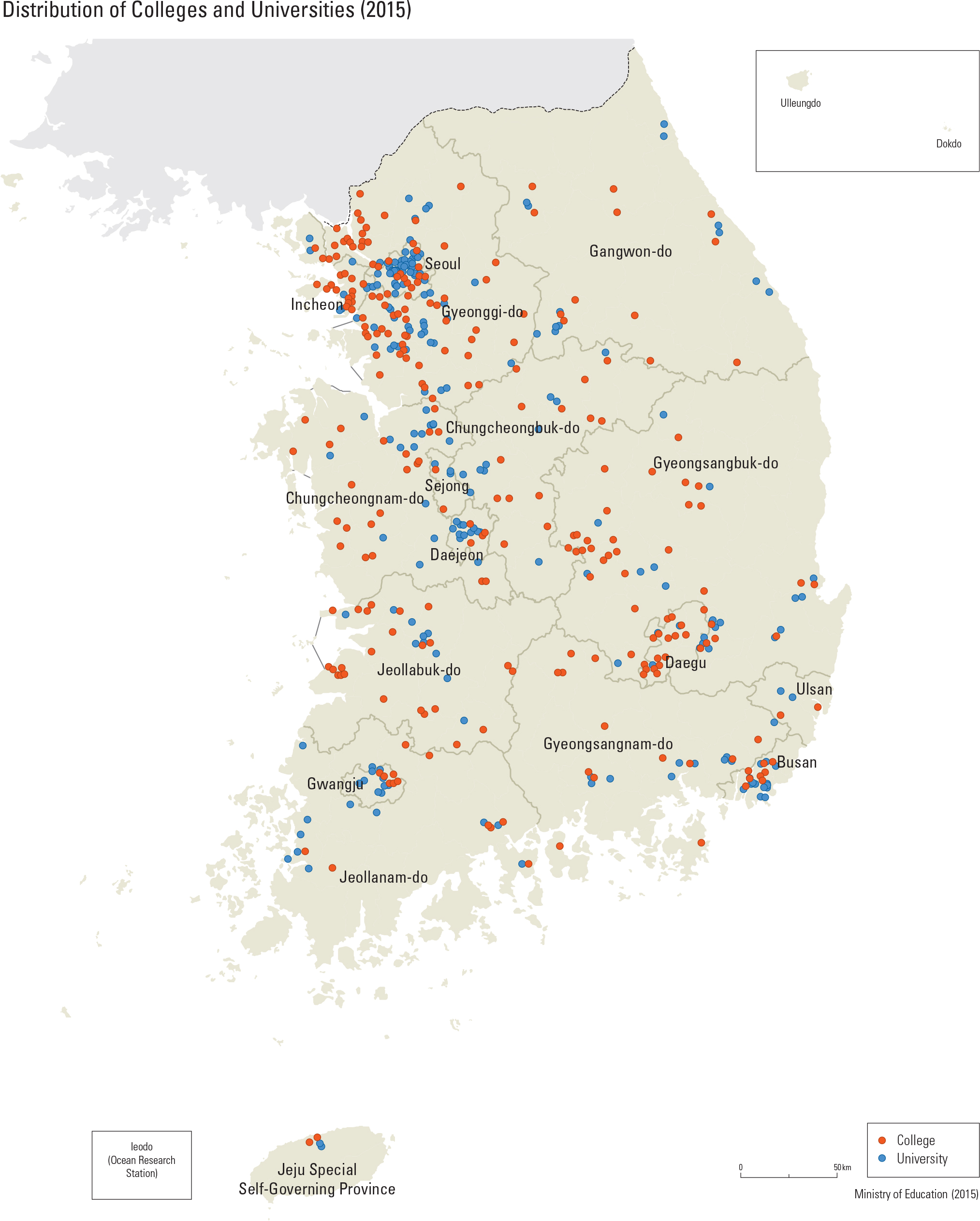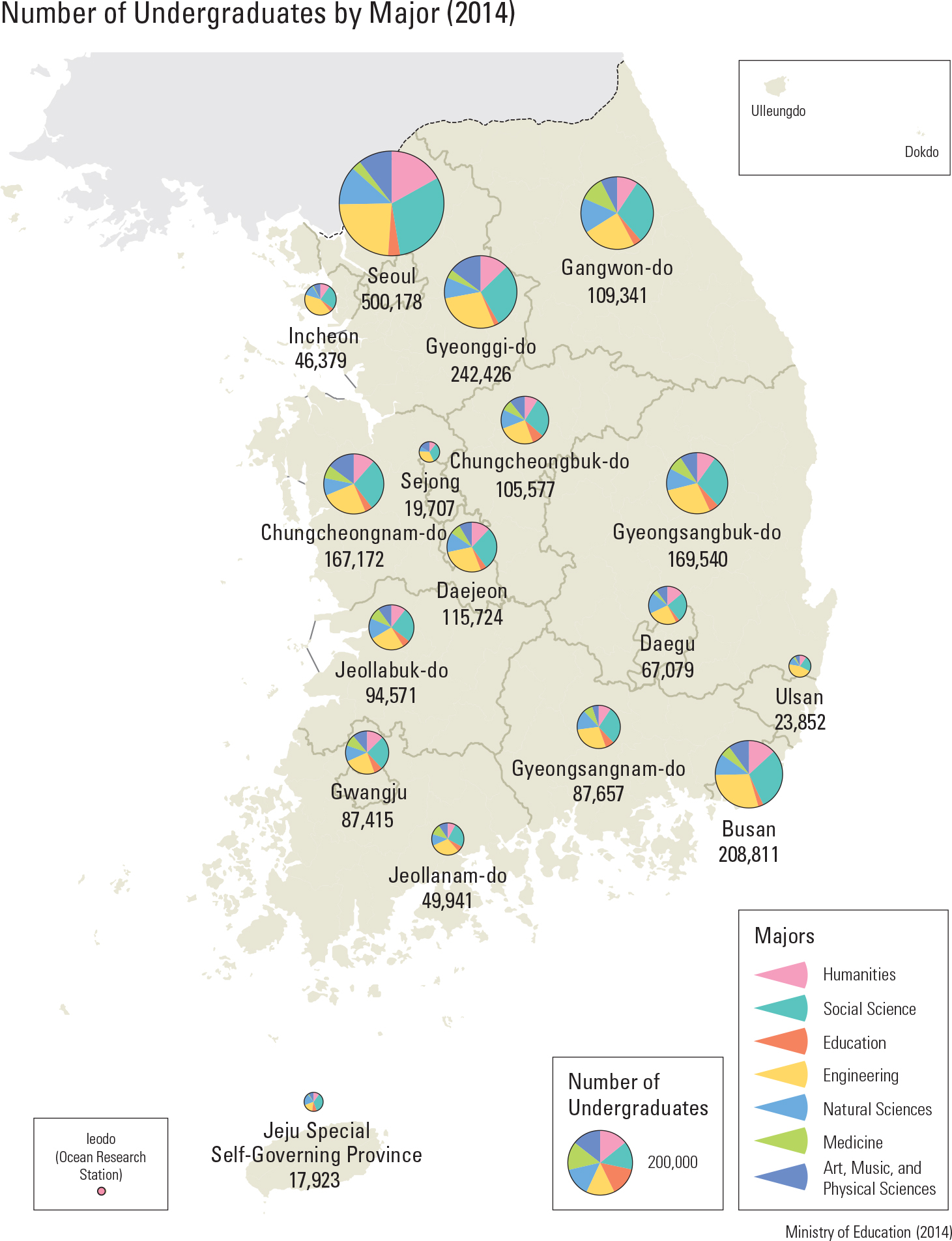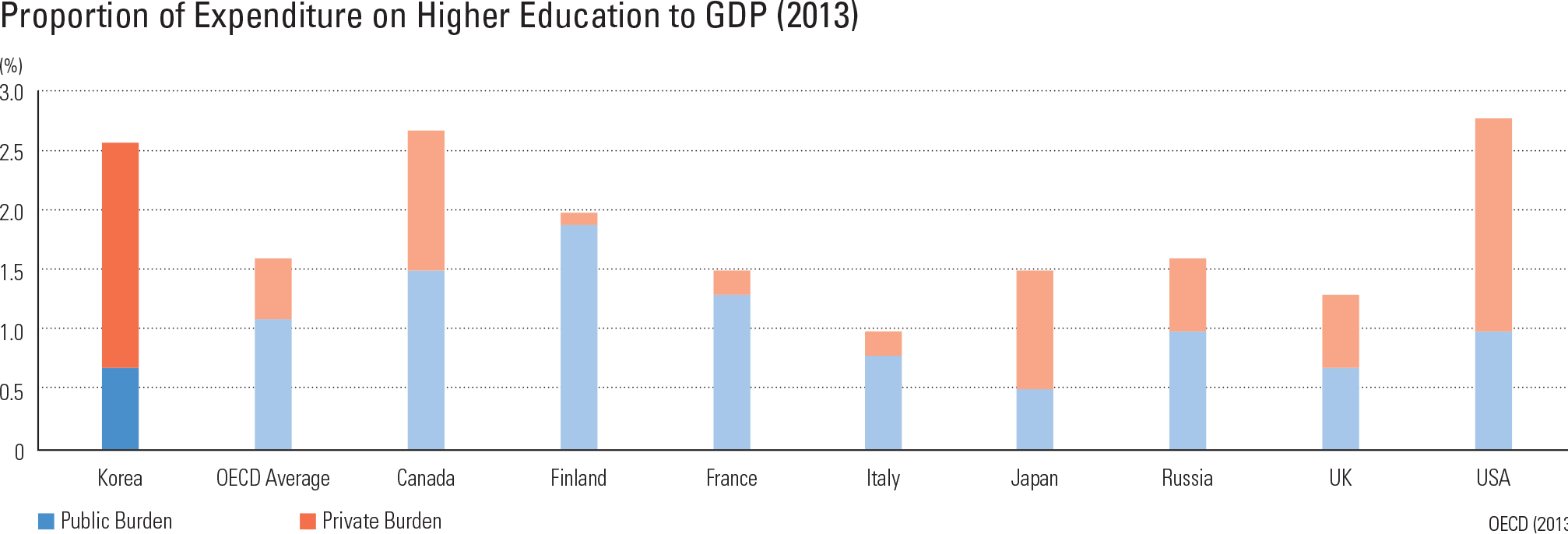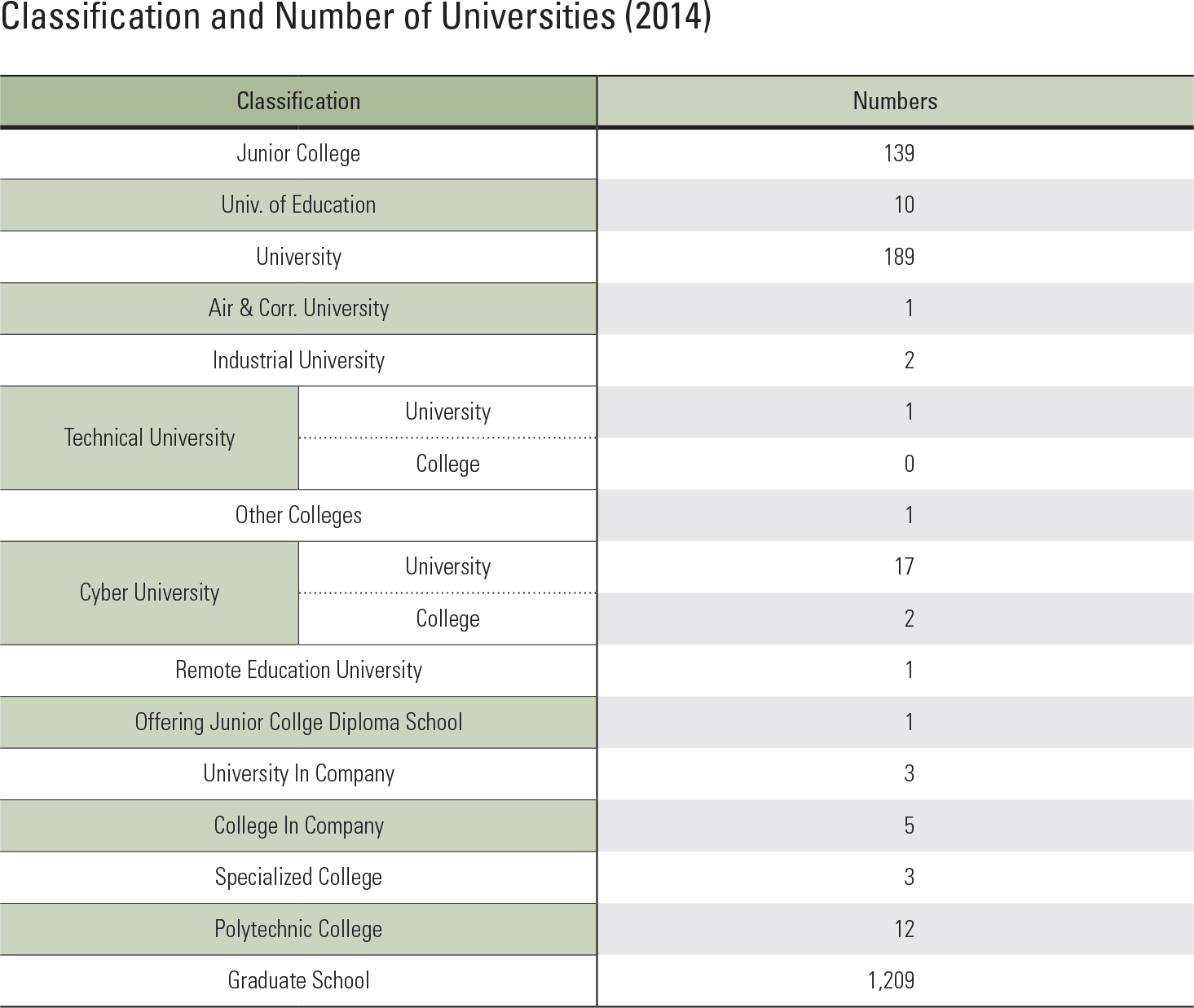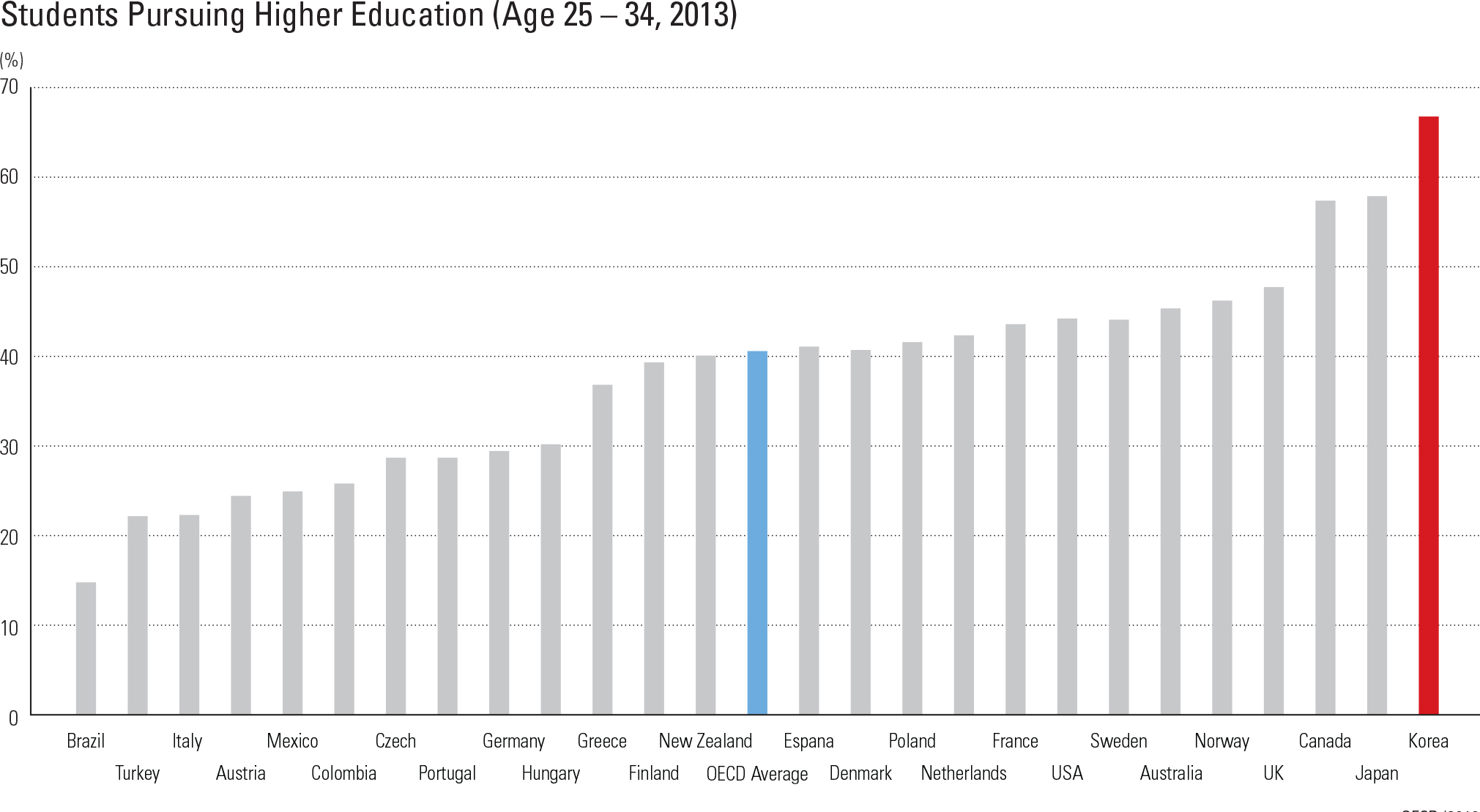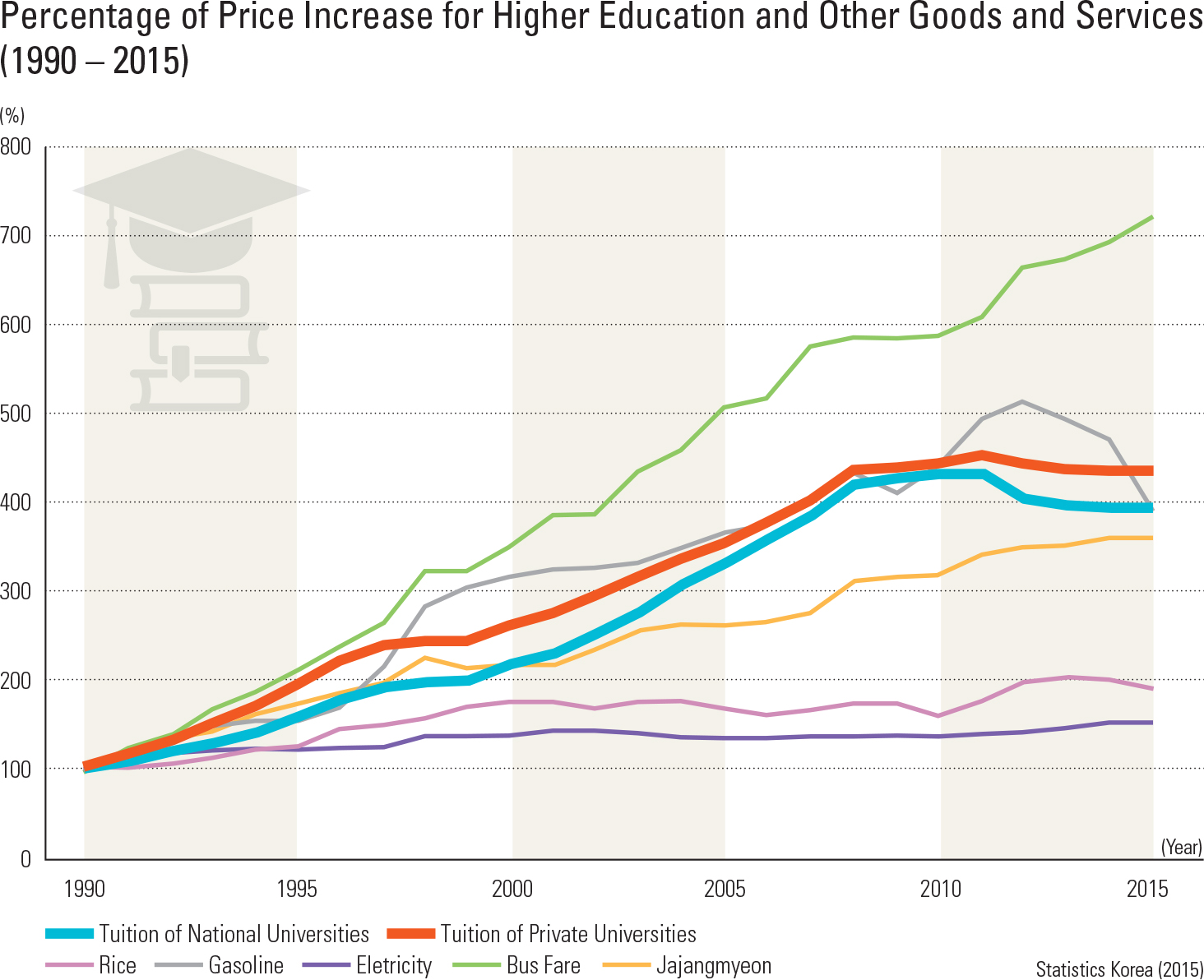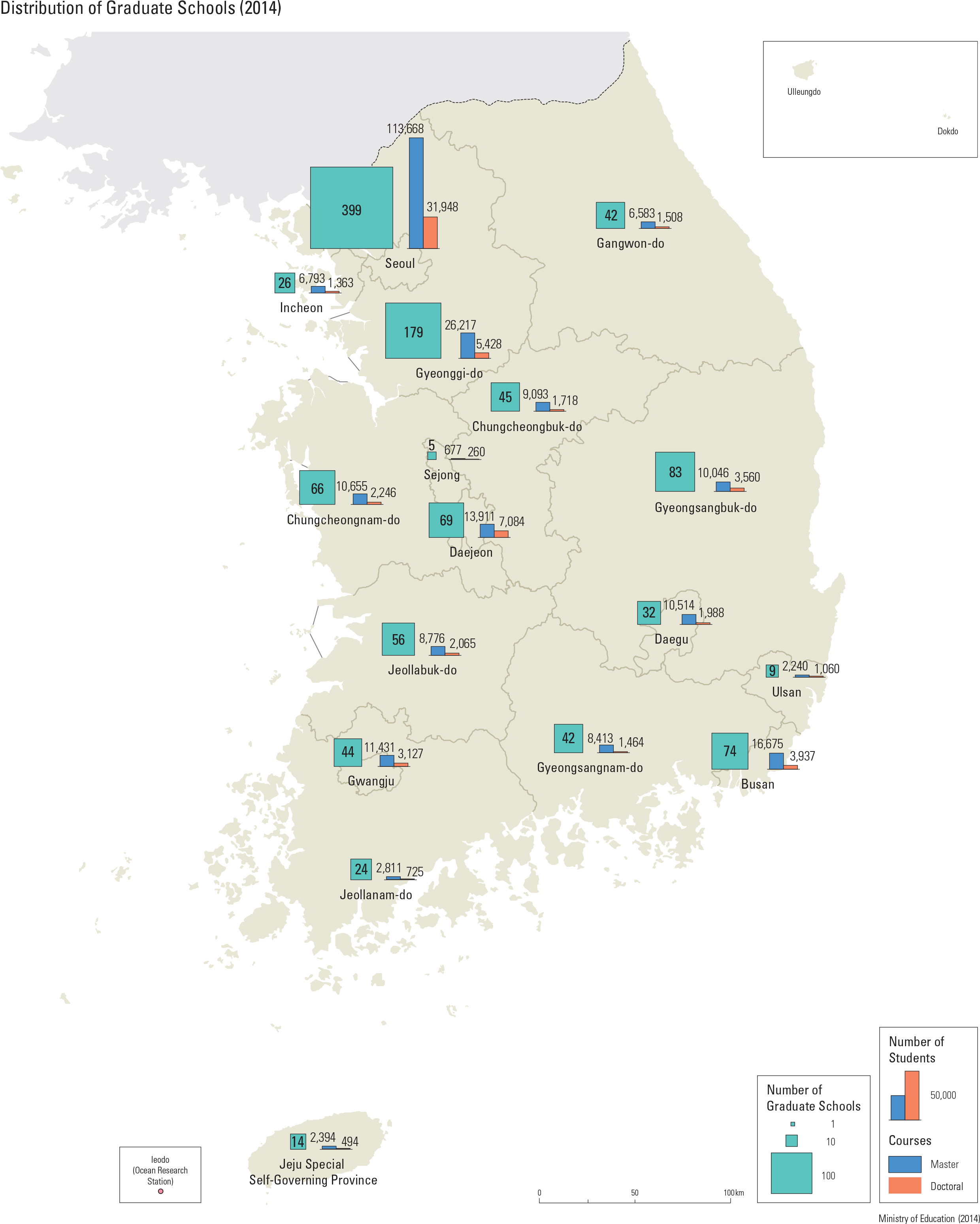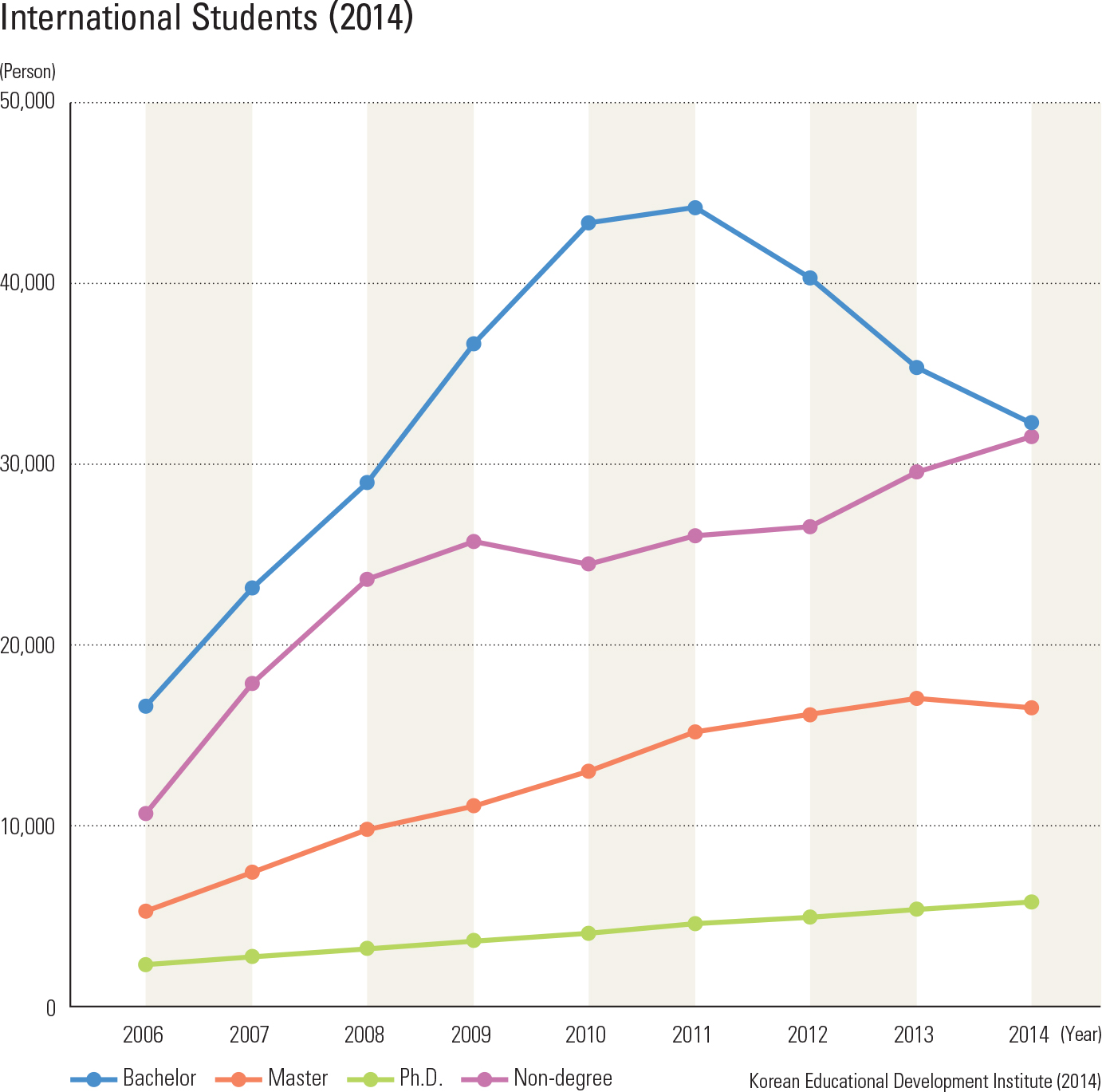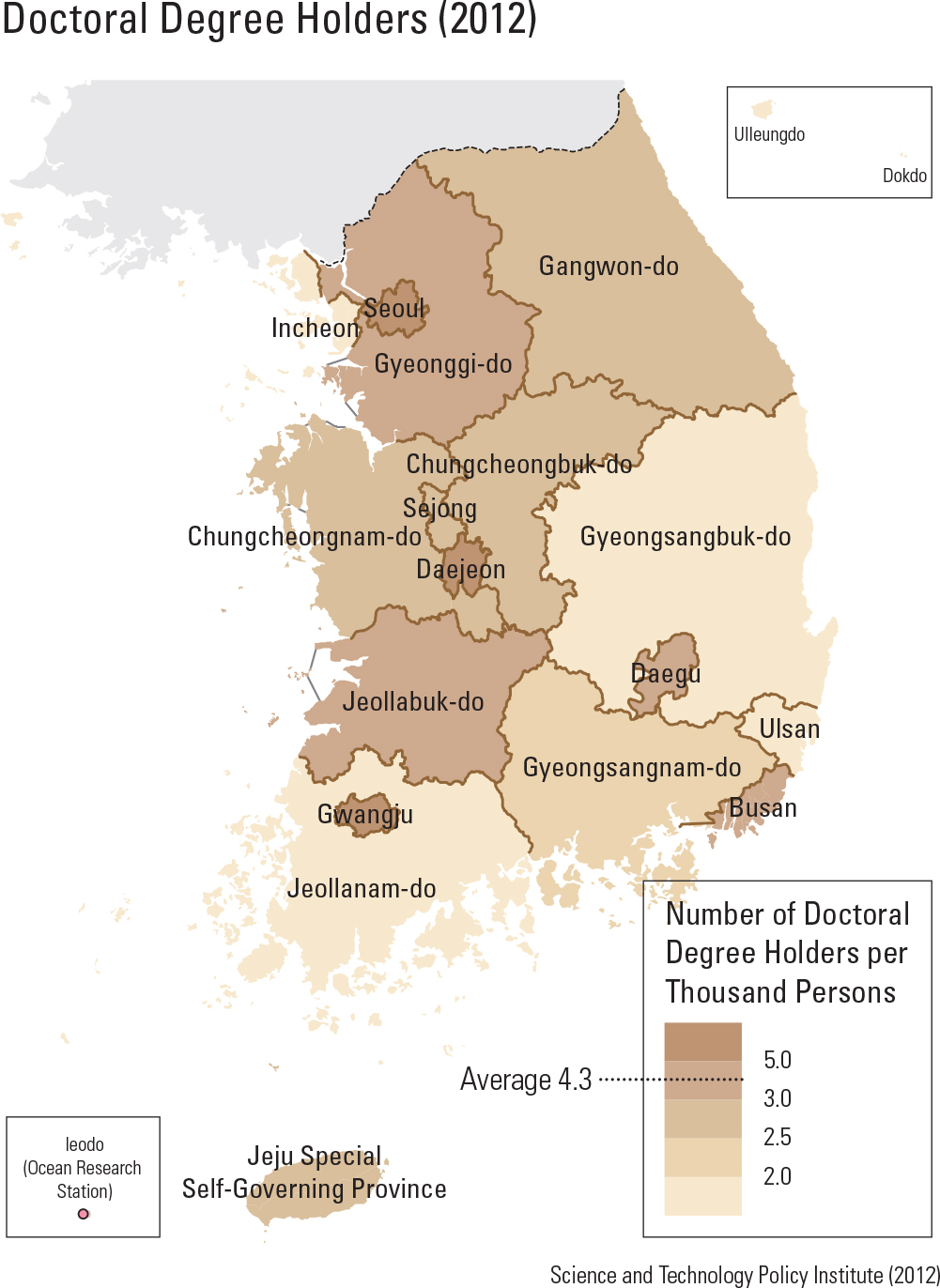English III
Korea’s higher education has undergone significant changes. The number of colleges and college enrollments have increased rapidly, and various types of colleges have been established. There are many types of colleges: four- year universities and two-year colleges, teacher education colleges for training elementary school teachers, and uni- versities that offer education through remote access. In addition, there are many other colleges such as military academies and academies that offer training for various pro- fessions. Universities are classified into national and private uni- versities; a few national universities were established in the central city of each province. Private universities have been established on the basis of their unique educational goals. Since the 1990s, as the number of private universities has signi cantly increased, the percentage of students entering universities has also grown at a dramatic rate, to the point where the current percentage of students entering university in Korea is the highest among the OECD countries. The positive aspect of this phenomenon is the achievement of a highly educated workforce, but this also results in signi - cant economic burden to the students. The appropriate level of college tuition, the state’s scholarship support, and the maintenance of scal sustainability of both public and pri- vate universities have emerged as important agenda items Majors in universities are largely classified under human- ities, social sciences, education, natural sciences, engineer- ing, medicine, arts, music, and physical sciences. Many graduate schools have been established in accor- dance with increasing demands for development of higher education and professional knowledge. While many grad- uate schools operated by universities account for a large share, there are many graduate schools for religious train- ing, executive development, medical expert training, and legal profession training University professors mostly have doctoral degrees, and doctoral degree are obtained at both domestic universities and foreign countries, such as the United States, Japan, and Germany. In addition, many foreign students have recent- ly entered Korean colleges and graduate schools to take Korean language courses and to obtain a degree due to the increased quality of higher education garnered by Korean universities internationally.
page_2 |
